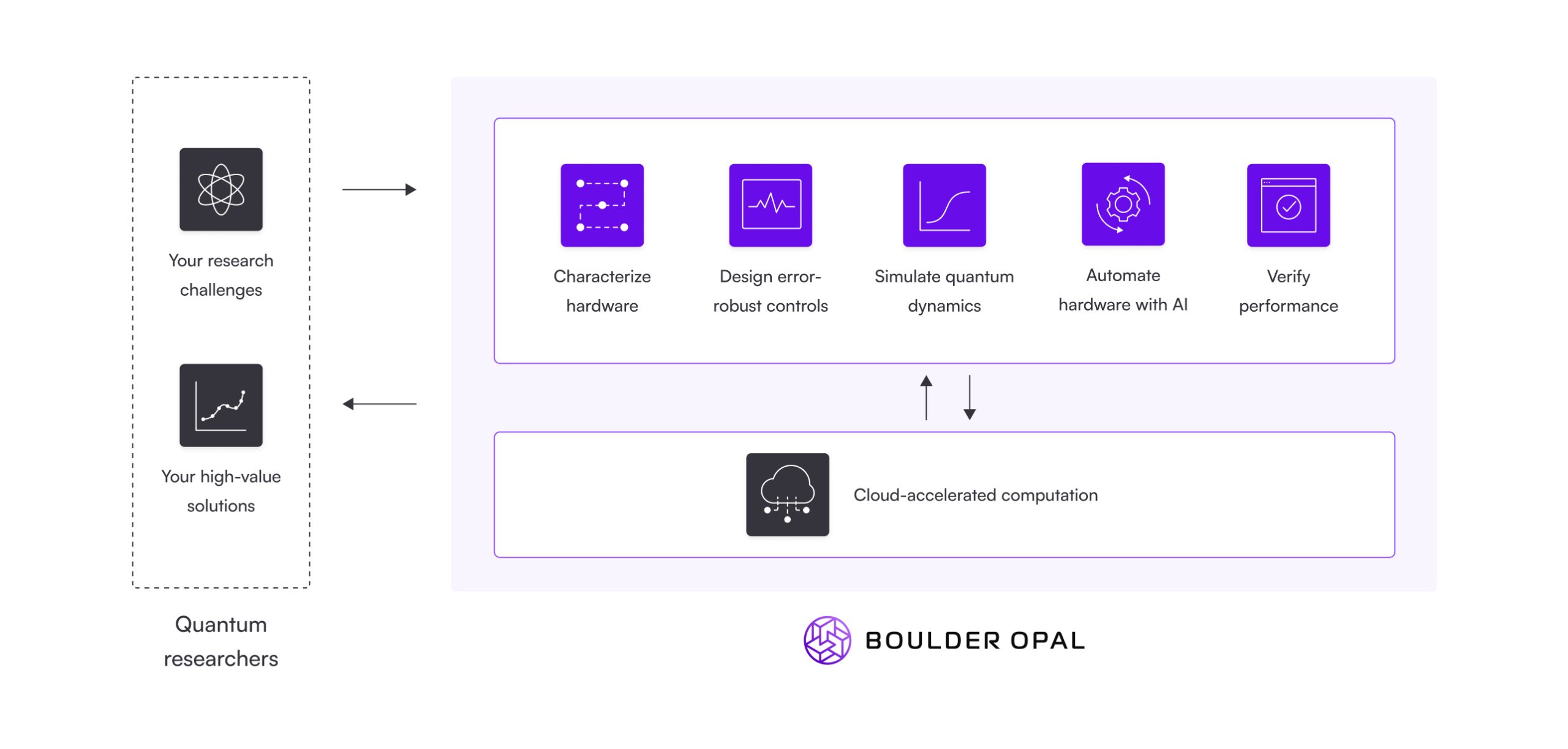Quantum technology company Q-CTRL is offering free basic access to Boulder Opal, its flagship research tool in quantum control, for the academic research community. Boulder Opal is used by national laboratories, top universities, and private sector quantum companies to accelerate research and maximize quantum hardware performance. The Python-based package provides best-in-class numerical techniques for control design, simulation, quantum digital twinning, performance validation, and AI-driven hardware automation. The free access aims to help researchers solve tough R&D challenges and accelerate their work.
Boulder Opal: A Quantum Control Research Tool
Boulder Opal is a flagship research tool in quantum control that offers best-in-class numerical techniques for control design, simulation, quantum digital twinning, performance validation, and AI-driven hardware automation. It is a versatile Python-based package widely used by national laboratories, top universities, and private-sector quantum companies to accelerate research and maximize quantum hardware performance.
The company behind Boulder Opal has announced that basic access to the tool will now be free to the academic research community. This will allow researchers to combine the technical capabilities of Boulder Opal with production-level quality, professionally maintained documentation, and cloud-provisioned computational resources without being constrained by their laptops.
Convenience and Flexibility for Experimentalists
Boulder Opal aims to provide convenience and flexibility to experimentalists by offering core technical capabilities that can help researchers find solutions to their problems quickly. For example, hardware automation can shave hours off calibration tasks, and the tool’s recent addition of AI capabilities can further streamline the process.
“Our mission is to make quantum technology useful; as a quantum company we do this through product innovation that’s underpinned by cutting-edge research.”
One of the key features is the automated experiment scheduler, which automates the manual processes of hardware calibration and system bring-up. In a recent demonstration, the scheduler enabled a superconducting quantum computer to be brought up from a cold start to maximum performance in under 90 minutes. The tool also offers a range of convenience functions for core experimental tasks and allows customization to handle unique system requirements.
Support for Theoretical Research
Boulder Opal also supports the theoretical research community by providing tools and documentation to tackle tough numerical challenges in quantum technology. As quantum devices become more complex, numerical optimization over high-dimensional spaces becomes critical, and conventional packages often fall short.
To address this, Boulder Opal has introduced a gradient-free optimization package that allows for adding constraints and crafting custom cost functions. This package can help researchers identify initial values to speed up the optimization process and use less memory, as it doesn’t need to compute the gradient, delivering results quickly.
Free Access to Boulder Opal for Academic R&D
The company offers a free, self-service tier of Boulder Opal to support the entire academic research community. With the Basic plan, researchers can try the product at their own pace and integrate it into their workflows. The Python-based tool can seamlessly connect with other software packages and hardware.
Early users have reported that free access to Boulder Opal has allowed them to further their research and optimize various aspects of quantum devices, such as two-qubit gates and noise-robust pulses.
Additional Resources and Premium Features
For users who need more performance or access to additional features, the company offers options to chat with their expert team. These options include access to more compute resources and premium features such as an ultra-low-latency hybrid solution, which combines cloud compute with local execution to reduce latencies to milliseconds for time-critical closed-loop optimizations.
“I’m using Boulder Opal’s pulse-control feature to optimize the fidelity of a two-qubit gate on quantum devices. My goal is to generate noise-robust pulses to solve a nuclear physics topic. After I graduate, I’ll be working as an Applications Engineer at the National Quantum Computing Center in the UK where I hope to continue using Boulder Opal for industry applications.”
Manqoba Hlatshwayo, PhD candidate at Western Michigan University/Research collaborator at Lawrence Livermore National Laboratory
Executive Summary
Quantum technology company Q-CTRL offers free access to Boulder Opal, its flagship research tool in quantum control, for the academic research community. Boulder Opal provides best-in-class numerical techniques for control design, simulation, performance validation, and AI-driven hardware automation, helping researchers accelerate their work and maximise quantum hardware performance.
- Quantum technology company Q-CTRL is offering free basic access to Boulder Opal, their flagship research tool in quantum control, for the academic research community.
- Boulder Opal is used by national laboratories, top universities, and private sector quantum companies, including Northwestern University, Chalmers University of Technology, Atom Computing, and Pasqal.
- The software delivers best-in-class numerical techniques for control design, simulation, quantum digital twinning, performance validation, and AI-driven hardware automation.
- Boulder Opal is a versatile Python-based package, making it ideal for deploying cutting-edge capabilities in quantum control.
- The tool provides convenience and flexibility for experimentalists, including an automated experiment scheduler that can save hours on hardware calibration and system bring-up tasks.
- For the theoretical research community, Boulder Opal offers an all-new gradient-free optimization package that allows for convenient addition of constraints and crafting of cost functions in challenging numerical regimes.
- The free Basic plan allows users to try the product at their own pace and integrate it into their workflows, seamlessly connecting with other software packages and hardware.
Read More.

